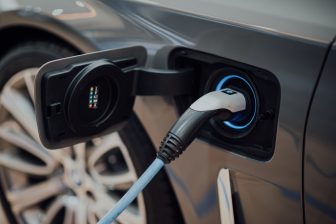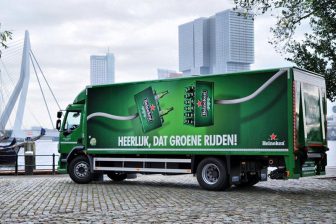
FABRIC – Paving the way for large scale deployment of electromobility
A new EU project launches to promote the large scale deployment of electromobility in EU and worldwide focusing on on-road charging solutions.
Over the next four years the €9 million FABRIC integrated project will directly address the technological feasibility, economic viability and socio-environmental sustainability of dynamic on-road charging of electric vehicles. The project officially launched its activities with the consortium kick-off meeting, held in Athens, Greece from 3 to 5 February 2014 and hosted by the project coordinator, the Institute of Communication and Computer Systems. High level representatives from the EC, ERTICO and EUCAR joined the meeting and addressed the 60 participants.
In pursuing the decarbonisation of road transport and mobility, it is widely recognised that electro-mobility, or ‘e-mobility’, i.e. using either fully electric or highly electrified vehicles such as plug-in hybrids, will prove to be an essential component. However the key to the future success of e-mobility, particularly from the perspective of the commercial viability of electric vehicles, will be the achievement of large scale acceptance, meaning wide support for innovative, clean mobility solutions by the general public, in addition to the policy makers.
>From this perspective, one of the critical parameters for the acceptance of fully electric vehicles relates to the fact that energy storage in batteries still suffers from a number of serious drawbacks such as limited range which causes what is commonly known as “range anxiety” to the driver and long recharging times. This makes electro-mobility unsuitable for longer trips that may require recharging.
In this context, the FABRIC project responds to the need to assess the potential and feasibility of a more extensive integration of electric vehicles in the mobility and transport system, focusing primarily on dynamic, on-the-go wireless charging which would allow practically all of the drawbacks of on-board battery packs to be avoided.
On-road charging would also enable a direct link to renewable energy sources that could also be deployed in a decentralised way, where they are needed. Ultimately this is the only way to fully decarbonise road transport and hence provide true sustainability from the socio-environmental perspective.
By engaging a highly-qualified, expert and comprehensive group of key stakeholders within its consortium, FABRIC will collect and assess the end-user requirements that in turn could determine the success potential in various application sectors, the technology drivers and challenges that impact the widespread implementation of wireless charging technology, and the technology gaps to be bridged in order to provide rational and cost-effective solutions for the grid and road infrastructures.
FABRIC’s project activities will assess different charging solutions from the technological, social and economic point of view to determine the impact of competitive charging technologies. Moreover, FABRIC will implement and test advanced solutions, conceived to enable full integration in the grid and road infrastructure within urban- and extra-urban environments, for application to a wide range of future electric vehicles. The systems that will be developed in FABRIC will be tested in three test sites, in Italy, France and Sweden, to ensure interoperability and validity of the proposed solutions.
The ultimate goal of the FABRIC consortium, which comprises 24 partners from 9 European countries (including OEMs, suppliers and service providers from the automotive, road and energy infrastructure domains and research organisations), is to provide a pivotal contribution to the evolution of e-mobility in Europe, by identifying the benefits and costs in absolute terms so that the investments required in the coming years for widespread implementation and exploitation can be fully defined and quantified.
ERTICO – ITS Europe is manger of Sub-Project (SP) 2, which covers the ICT solutions required for dynamic electric charging. These may include on-board, roadside or centralised systems covering driver information, reservation and payment services, access control, trajectory control or assistance, etc. The effects of the system on non-users (including pedestrians, cyclists, animals, etc) also needs to be taken into account, as well as the effects on existing ITS infrastructure and services.
ERTICO also involved in several other technical activities in the project as well as being a supporting partner to ICCS for dissemination and exploitation aspects.
U las zojuist één van de gratis premium artikelen
Onbeperkt lezen? Profiteer nu van de introductieaanbieding voor € 10,- per maand.
Bent u al abonnee?



